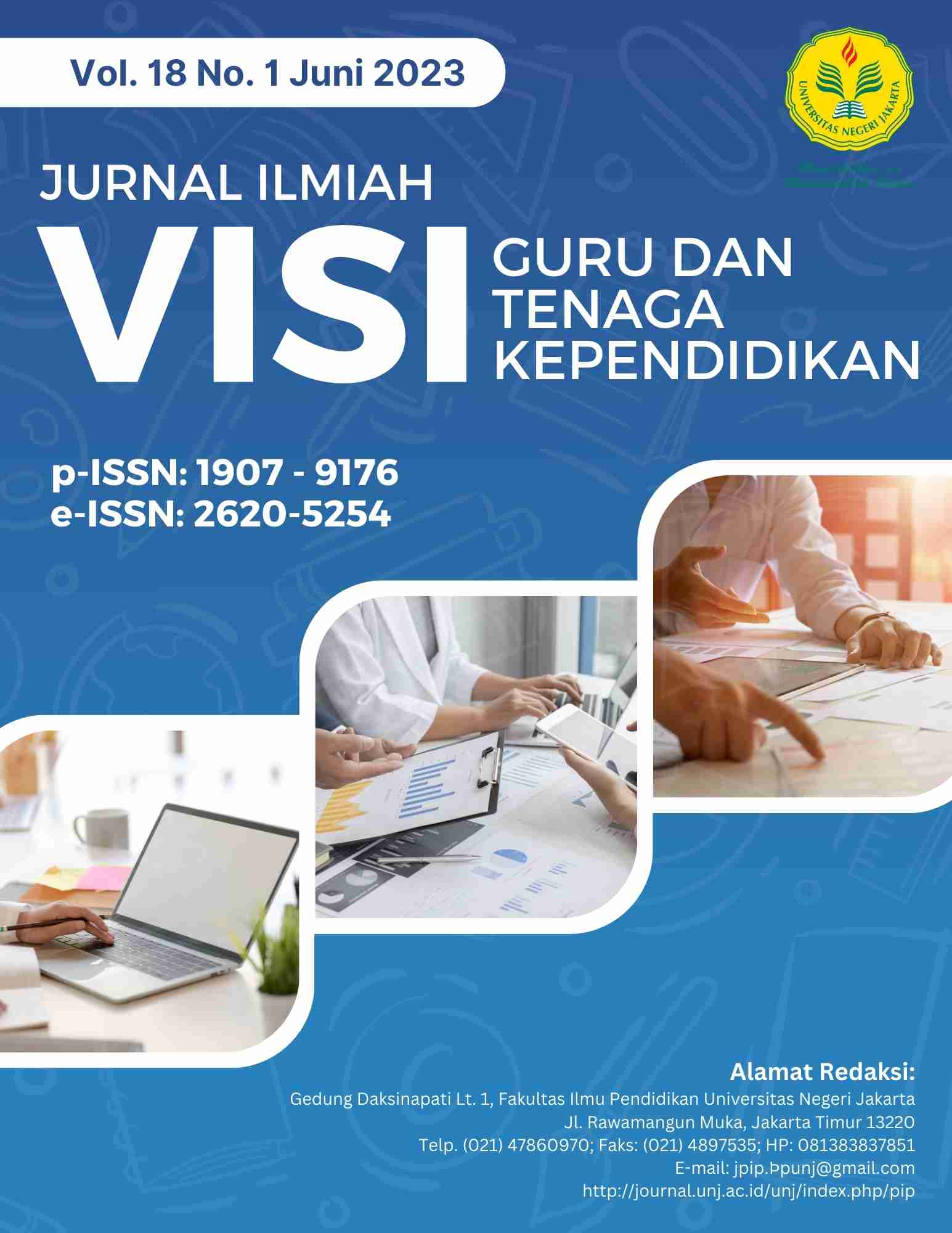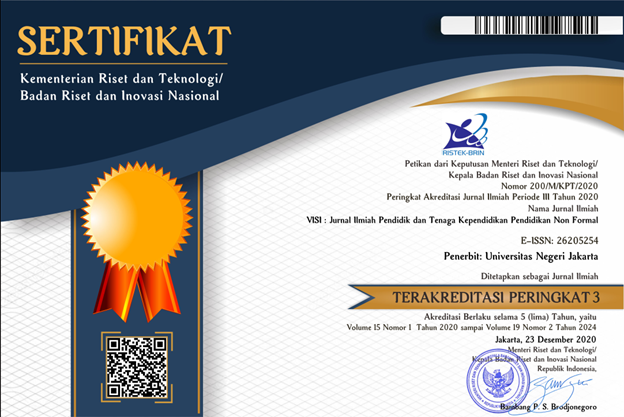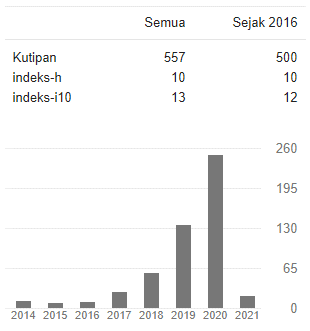Family-Based Early Intervention Based on Family Outcomes for Families with Children with Multiple Disabilities
DOI:
https://doi.org/10.21009/JIV.1801.5Keywords:
Early Intervention, Multiple Disabilities, Family OutcomesAbstract
This study aims to formulate a family-based early intervention program for parents who have children with Multiple disabilities based on Family Outscomes. The background of this study is the lack of family information related to the identification of children with multiple disabilities, family confusion in handling children who experience multiple disabilities, and the absence of family confidence in the situation of their children in the social environment. The subjects in this study were parents who had Children with Multiple Disabilitiesin this case were children with Cerebral Palsy who experienced obstacles in motor, cognitive, social & emotional, and language aspects and intellectual barriers. This research approach is a qualitative approach with three stages of research, namely assessment, validation, and implementation. The result of this study is an increase in family understanding of the child's condition, the occurrence of stimulation carried out by the family to the child, the family has begun to want to socialize their children in the surrounding social environment. The results and discussion of further research are discussed in this study.
Downloads
Published
How to Cite
Issue
Section
License
Authors who publish with this Journal agree to the following terms:
- Author retain copyright and grant the journal right of first publication with the work simultaneously licensed under a creative commons attribution licensethat allow others to share the work within an acknowledgement of the work’s authorship and initial publication of this journal.
- Authors are able to enter into separate, additional contractual arrangementfor the non-exclusive distribution of the journal’s published version of the work (e.g. acknowledgement of its initial publication in this journal).
- Authors are permitted and encouraged to post their work online(e.g. in institutional repositories or on their websites) prior to and during the submission process, as it can lead to productive exchanges, as well as earlier and greater citation of published works.
- Users/public use of this website will be licensed to CC BY-NC-SA Creative Commons Attribution-NonCommercial-ShareAlike 4.0 International License









